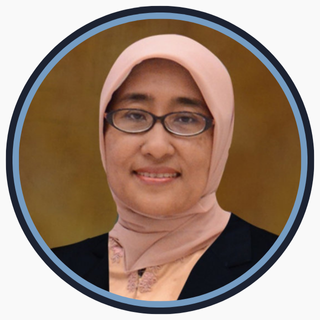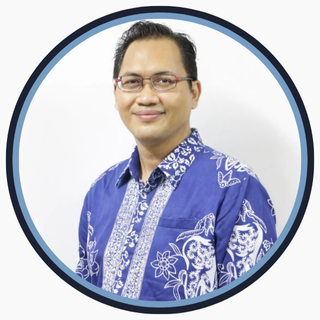Influence of Family Support and DM Status with Hemodialysis Patient's Quality of Life
Downloads
Management of CKD (Chronic Kidney Disease) in the final stage that is mostly done in Indonesia is hemodialysis. Psychosocial problems such as lack of family support sometimes become severe problems that must be faced by hemodialysis patients. Diabetes Mellitus (DM) as a cause of CKD is also a health problem that greatly increases the risk of morbidity and mortality for patients. This study aims to analyze the effect of family support and DM status on the quality of life of hemodialysis patients. This research was an observational analytic study with a cross-sectional design. The sample of this study were 72 patients at the Hemodialysis Installation of the Haji Public Hospital (RSU Haji) Surabaya, which was calculated using simple random sampling through a list of hemodialysis schedules. Data collection was carried out using interviews and looking at secondary data on patient examination documents. The questionnaire used was the WHOQOL-BREF questionnaire and the family support questionnaire. The results showed that there was an influence between family support (p = 0.005) and DM status (p = 0.003) on the quality of life status of patients. The conclusion of this study is the quality of life of hemodialysis CKD patients at Haji Hospital Surabaya is influenced by the family support they receive and DM status. DM status is the variable that most strongly influences the quality of life. Therefore, the intervention is focused on controlling patients with DM and supportive therapy in families.
Arikunto, S. 2013. Manajemen Penelitian. Rineka Cipta. Jakarta.
Asri, P., Marthan, Mariyono S.W., dan Purwanta 2006. Hubungan Dukungan Sosial dengan Tingkat Depresi Pasien yang Menjalani Terapi Hemodialisis. Jurnal Ilmu Keperawatan 1 (2): 82-86. http://www.i-lib.ugm.ac.id. (diakses pada 12 Nopember 2014)
Atun, S. 2011. Pengaruh Terapi Suportif Terhadap Kemampuan Keluarga Merawat Klien gagal Ginjal Kronik (GGK) yang Menjalani Hemodialisa di Rumah Sakit Pelni Jakarta. Tesis. Ilmu Keperawatan Universitas Indonesia. Depok.
Azwar, S. 2005. Sikap Manusia dan Pengukurannya. Pustaka Setia. Jakarta.
Bestari, A.W. 2015. Faktor yang Berhubungan dengan Kualitas Hidup Psien Penyakit Ginjal Kronis (PGK) Hemodialisis Berdasarkan WHOQOL BREF (Penelitian di Instalasi Hemodialisis RSU Haji Surabaya Tahun 2015). Skripsi. Ilmu Kesehatan Masyarakat Universitas Airlangga. Surabaya.
Brunner dan Suddarth. 2002. Buku Ajar Keperawatan Medikal Bedah. EGC. Jakarta.
Chiang, C.K., Chwei-Shiun Y., Kuan-Yu H., Shou-Shan C., Yang-Hsun H., Yu-Seng P., et al. 2004. Health-related Quality of Life of Hemodialysys Patient in Taiwan : A Multicenter Study. Journal Blood Purification 22 (6) :490–498. http://www. ncbi.nlm.nih.gov/pubmed. (diakses pada 13 Januari 2014).
Devisi Ginjal dan Hipertensi RSUD Dr. Soetomo. 2014. 4th Renal Nurse Symposium 2014 IPDI PD Jatim. PPNI. Surabaya.
Friedman, M., Bowden O. dan Jones M. 2003. Family Nursing: Theory and Practice. Ed. 3rd. Appleton & Lange. Philadelpia.
Green, L.W., Marshall W.K., Sigrid G.D., dan Kay B.P. 2002. Health Educational Planning: A diagnostic Approach. Mayfield Publishing. California.
Ibrahim, K. 2009. Kualitas Hidup Pasien Gagal Ginjal Kronis yang Menjalani Hemodialisis. Medical Journal 37 (3). http://www.mkb-online. org. (diakses pada 13 Januari 2015)
Jones, G.W. dan Gubhaju B. 2008. Trends in Age at Merriage in the Province of Indonesia, Asia Researches Institute Working Papper Series. Hukumpedia. Jakarta.
Kimmel, P.L., dan Patel, S.S. 2003. Psychosocial issues in woman with renal desease. Advances in Renal Replacement Therapy. Journal of American Society of Nephrology 10 (1): 61–70. http://jasn.asnjournals.org. (diakases pada 11 januari 2015)
Kusuma, H. 2011. Hubungan Antara Depresi dan Dukungan Keluarga dengan Kualitas Hidup Pasien HIV/AIDS yang Menjalani Perawatan di RSUPN Cipto Mangunkusumo Jakarta. Tesis. Ilmu Keperawatan Universitas Indonesia. Depok.
Molzahn, Anita, Butera, dan Ecelyn. 2006. Contemporary Nursing: Principle and Practice. American Neprhrology Nurse Association. New Jersey.
Nurchayati, S. 2011. Analisis Faktor-faktor yang Berhubungan dengan Kualitas Hidup Pasien Penyakit Ginjal Kronik yang Menjalani Hemodialisis di Rumah Sakit Islam Fatimah Cilacap dan Rumah Sakit Umum Daerah Banyumas. Tesis. Ilmu Keperawatan Universitas Indonesia. Depok.
Notoadmodjo, S. 2010. Promosi kesehatan, Teori dan Aplikasi. Rineka Cipta. Jakarta.
Perhimpunan Nefrologi Indonesia (PERNEFRI). 2013. 4-5th Annual Report of Indonesian Renal Registry (IRR). http://www.pernefri-inasn.org/ gallery.htm (diakses pada 27 September 2014).
Prabawati, A. 2006. Faktor yang Berhubungan dengan Status Kualitas Hidup Pasien Penyakit Ginjal Kronis dengan Hemodialisis (Studi pada Pasien Hemodialisis Kronis di Instalasi Hemodialisis RSU Dr. Soetomo Surabaya). Skripsi. Ilmu Kesehatan Masyarakat Universitas Airlangga. Surabaya.
Kementerian Kesehatan Republik Indonesia (KEMENKES RI). 2013. Laporan Riset Kesehatan Dasar Tahun 2013. Jakarta.
Smeltzer dan Bare. 2008. Medical Surgical Nursing. EGC. Jakarta.
Suwitra, K. 2009. Penyakit Ginjal Kronik, Buku Ajar Ilmu Penyakit Dalam. Pusat Penerbitan Departemen Ilmu Penyakit Dalam FKUI. Jakarta.
Wahyuningsih, S.A. 2011. Pengaruh Terapi Suportif terhadap Kemampuan Keluarga Merawat Klien Gagal Ginjal Kronik (GGK) yang Menjalani Hemodialisis di Rumah Sakit PELNI Jakarta. Tesis. Ilmu Keperawatan Universitas indonesia. Depok.
Wulandari, W.D. 2004. Penentuan validitas WHOQOL-100 dalam menilai kualitas hidup pada pasien rawat jalan di RSCM (versi Indonesia). Tesis. Program Pendidikan Dokter Spesialis Universitas Indonesia. Jakarta.
Young, S. 2009. Rethinking and Integrating Nephrology Palliative Care: A Nephrology. Nursing Perspective. The Cannt Journal January-March 2009 19(1): 36–44.
Yuliaw, A. 2009. Hubungan Karakteristik Individu dengan Kualitas Hidup Dimensi Fisik Pasien GGK di RS Dr. Kariadi Semarang. Tesis. Ilmu Keperawatan Universitas Muhamadiyah. Semarang dari digilib.unimus.ac.id/files.disk1 (diakses pada tanggal 1 Januari 2015).
- Every manuscript submitted to must observe the policy and terms set by the Jurnal Berkala Epidemiologi
- Publication rights to manuscript content published by the Jurnal Berkala Epidemiologi is owned by the journal with the consent and approval of the author(s) concerned. (download copyright agreement)
- Complete texts of electronically published manuscripts can be accessed free of charge if used for educational and research purposes according to copyright regulations.

JBE by Universitas Airlangga is licensed under a Creative Commons Attribution-ShareAlike 4.0 International License.























